When to start weaning
Are you looking for guidance on weaning your baby? Most parents ask me about when to start weaning as well as guidance on weaning high allergenic foods. If you are feeling confused, frustrated or afraid to start weaning a baby, then this article will answer your questions around weaning.
Both the NHS and WHO weaning guidelines recommend starting solids around 6 months of age. This is because it’s really important that when you start weaning your baby onto solid foods, your baby is developmentally ready to do so.
Signs that your baby is ready for weaning
- your baby can stay in a sitting position, holding their head steady
- coordinate their eyes, hands and mouth so they can look at their food, pick it up and put it in their mouth
- swallow food (rather than spit it back out)
Equipment for weaning
Here’s the fun part. Please note, the following listings contain affiliate links to products that I have personally used or are currently still using.
We love our Tripp Trapp® wooden chair that keeps growing with our baby. The best part about this chair is that baby can join in the family meals even if just starting first foods.
Long sleeved weaning bibs are essential. Otherwise you’ll spend so much time doing the laundry.
The Munchkin suction bowls or Munchkin lidded bowls are fantastic too. I’ve hung onto these for a few years as they’ve been great for storing berries and chopped fruit for trips to the park and daily outings.
Tommee Tippee weaning spoons are handy to scoop out yoghurt or puree from jars.
Doidee cups are excellent for training babies to drink from an open cup from 6 months. You can transfer expressed breast milk, water or formula. I’ve used this for both my girls.
Beakers with a firm spout are ideal. Fluids should easily flow. These beakers are great as they are lidded and handy for little hands to grab onto.
Instant formula prep machines like this one by Tommee Tippee is not necessary but could be handy for night feeds.
If you are breastfeeding and would like a family member to help with night feeds, I cannot recommend the Medela Swing electric pump enough. I also used the hand pump version as it was light and easy to transport, however, the electric version was by far the most efficient.
Weaning at 4 months
You are absolutely right, previous NHS weaning advice was to start at 4 months of age alongside breastfeeding.
So you are probably wondering the benefits of weaning your baby onto baby food closer to the 6 months mark.
You see, the World Health Organisation (WHO) discovered that parents started weaning even earlier than 4 months. They were starting weaning around 3 months. This is too early for a variety of reasons, including that your baby won’t be developmentally ready. Their gut may also be immature to start weaning at 3 months.
Some babies may be ready at 4 months but the choice of solids is important. You will be focusing on offering ‘tastes’ of puree. You can use soft weaning spoons to feed your baby something non-allergenic, like vegetable puree.
If you choose to start weaning at 4 months, always offer baby the breast or bottle first. Choose a time in the day when your baby is alert. For the exact steps on how to start weaning, download this free weaning guide.
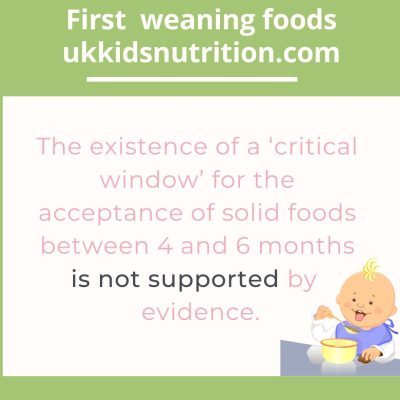
Weaning recipe
If you are weaning at 4 months, start with vegetables for first tastes. A root vegetable like carrots or green vegetables such as broccoli/courgettes is a great first weaning food.
Ingredients
1 carrot
Breastmilk, water or formula
Directions
Wash the carrot, peel the skin and steam until soft. Pop into a blender and using the water left in the pan, breastmilk or formula, prepare it so that it is a smooth and runny texture.
You can freeze into individual clean ice-cube trays for the next few days.
For more recipe ideas see recipes here.
Children need and deserve tailor-made nutrition advice from an expert who works in the area of children’s nutrition and dietetics; especially if you are looking for advice on how to start weaning high allergenic foods.
Childhood allergy is increasing. Here’s what AllergyUK says “A staggering 44% of British adults now suffer from at least one allergy and the number of sufferers is on the rise, growing by around 2 million between 2008 and 2009 alone. Almost half (48%) of sufferers have more than one allergy (Mintel, 2010)”
Why start weaning at 6 months?
The NHS weaning guidelines are very clear on waiting until 6 months to start weaning but the benefits may not always be clear.
This was obvious when I presented earlier in 2020 at a professional meeting on the SACN report on infant feeding.
There was confusion even amongst health care professionals on the benefits of delaying starting weaning until 6 months.
In fact, when the SACN report was first published in July 2018, I was interviewed on the radio by Eamonn Holmes on radioTALK.
I was asked, “why are we getting it wrong in the UK when we have access to so much information?”
I’ve answered that question clearly in this Facebook page post here.
Or click here if you’d like to listen to my comments on the 4 pm slot
Why you should start weaning at 6 months
The good news is that the Scientific Advisory Committee on Nutrition (SACN) released their latest report to confirm that weaning onto first foods should only be commenced around 6 months of age and not before 4 months.
This is not new news I agree, but what’s great is that there should no longer be any confusion about when to start weaning your baby onto first weaning foods or even high allergenic foods.
Don’t be tempted by misleading headlines and false weaning advice that promise sleep with early weaning. If your baby is less than four months of age, developmentally, they are just not the right age for weaning.
Early introduction of weaning solids and weaning foods reduce the amount of breastmilk your baby will take. This then increases their chance of infectious illness.
Did you know that babies who received exclusive breast feeding until 6 months were more likely to be protected from respiratory illness and diarrhoea and vomiting?
If you can, aim to breastfeed exclusively until 6 months of age. Breast milk provides your baby with protective proteins such as lactoferrin, secretory IgA, lysozyme and bifidus factors. These help your baby fight against bacterial and viral infections (reference).
“Babies introduced to weaning solids earlier are much more likely to eat more than what their growing bodies need.” If you need a week by week weaning plan for the first four weeks grab your free guide here.

The SACN report revealed that almost 75% of babies surveyed in the UK in 2013 exceeded their energy requirements. This puts them at great risk of childhood obesity. Early weaning does not necessarily increase their calorie intake, but weaning earlier than 4 months could reduce your baby’s important intake of breast milk.
Babies and children do come in all shapes and sizes. Teaching children to love their body regardless of their shape or size is powerful.
As parents, responding to hunger cues appropriately is important. If you program babies to eat more than they need that’s worrying and this may have hefty consequences in the future.
The verdict? Listen to your baby’s hunger cues. Babies cry for lots of reasons not just for hunger. If you have just fed your baby, do they need a cuddle, are they cold or did an unexpected noise wake them?
Weaning at 5 months
Let’s discuss guidance on weaning for babies who are developmentally ready to start weaning foods by 5 months of age. We recommend starting with a variety of vegetables of smooth puree as the first weaning foods. These are low allergenic foods and give your baby the opportunity to experience a good variety of flavours such as bitter tasting foods early.
If you have already passed the weaning stage and are worried about a fussy eater, grab the picky eater guide here.
They key to weaning your baby will be your choice of the first weaning foods.
Did you know that a study showed that babies who had high protein intake were more likely to gain weight rapidly? Boys who were given protein rich foods as first weaning foods in particular were more prone to rapid gain. In a study, this relationship persisted even until the children attained six years of age.
During weaning, try not to worry about how much of the first weaning foods your baby is eating. It’s all about experiencing a variety of tastes rather than the volume of food at this age.
What about food allergy?
Let’s discuss the 290-page SACN document. I’ve taken out the most important points with regards to food allergy and weaning on high allergenic foods for you.
What are the common high allergenic foods?
Dairy, egg, sesame, wheat, peanut and fish
Which high allergenic weaning foods should you introduce and when?
Traditionally, the popular advice was to avoid all high allergenic foods including peanuts during pregnancy and when you first start introducing solids. The latest evidence has refuted this advice.
Recent innovative research in the area of weaning has blown our minds away on how you should be approaching weaning.
You can now start offering your baby just about anything as long as you start around 6 months of age and avoid adding salt or sugar. Remember to move swiftly onto iron-rich foods including lentils, pulses, leafy greens, meat, chicken, eggs and fish.
You may still want to start with vegetables and fruit for first tastes.
But there’s no reason why you need to delay introducing cooked eggs or fish for example.
If it’s planned for a family meal then you can introduce these high allergenic foods any time from when your baby is between 6 and 12 months of age.
How safe is it to give your baby high allergenic foods?
Only up to 8% of babies will develop a food allergy in the UK.
The latest report by SACN and two UK studies LEAP and EAT agree that you don’t need to avoid or delay introducing high allergenic foods.
“In fact, the deliberate avoidance or delayed introduction of any of the specific high allergenic foods may actually increase your child’s risk of allergy to that food.”
In other words, do not delay introducing eggs, fish, pasteurised dairy, gluten/wheat, sesame and nuts.
This advice stands even if someone in your home other than your baby has a food allergy to one of the above food allergens.
If your baby has early onset eczema or has another food allergy, then introducing eggs and peanuts earlier than the official 6 months, alongside other weaning foods may help reduce the risk of your baby developing allergies to these foods.
When introducing eggs as part of weaning, make sure that it is thoroughly cooked, soft and mashed well. Start with very small amounts such as 1/4 baby spoonful early in the day with breakfast for example.
Does baby need an allergy test first?
Allergy testing can help identify babies who are at a very high risk of developing a food allergy.
It doesn’t prevent your baby from allergies and unnecessarily delaying introducing weaning foods that are also high allergenic foods when waiting for an appointment, for example, could potentially increase your baby’s risk of developing an allergy to that food.
The best course of action is to consult with a medical professional and your paediatric dietitian.
Which babies are at high risk of developing a food allergy?
If your baby suffers from eczema, particularly severe eczema or has an existing food allergy then he/she will be more likely to be at risk of reacting to other high allergenic foods.
How do you start introducing high allergenic foods?
Let your baby guide you and follow his/her pace. You can start by introducing any one of the allergenic foods one at a time. For specific advice, speak to a paediatric dietitian.
Eggs
If you start with eggs, for example, start by offering 1/4 – 1/2 a baby spoonful per day and slowly increase the amount offered every few days.
Once your baby is tolerating eggs without any reaction, just remember to offer it weekly so that they are regularly exposed to this allergenic food.
If your baby has severe eczema and you are worried, chat to your health visitor, GP or paediatric dietitian for specific advice.
Can I still follow baby-led weaning if I suspect a food allergy?
Yes, you can! When it comes to something like eggs, you can prepare quiche or omelettes and cut it into strips that baby can pick up.
Foods such as pieces of bread and pasta containing wheat/gluten are perfect when your baby is ready for these textures.
When introducing peanuts, simply spread the smooth nut butter onto toast whilst sesame seeds can be sprinkled over stir-fried vegetables. Babies will enjoy picking the veg using their hands.
Fish can be incorporated into home-made fish fingers and cakes or a petite tuna sandwich is perfect too. A fish sauce to coat pasta is fantastic too, but don’t mind the mess.
“Click here to read – Should you spoon-feed or follow baby-led weaning?”
Bottomline
You can start weaning your baby onto high allergenic foods from 6 months of age. For babies who have early onset eczema or thought to be at high risk of developing food allergies, your allergy doctor or paediatric dietitian may recommend starting with eggs and peanuts alongside first weaning foods earlier than 6 months.
Where possible, breastfeed and start weaning your baby around 6 months of age.
There is no advantage in delaying the introduction of high allergenic foods, in fact, it could increase your baby’s chance of developing a food allergy to the very food that you are avoiding.
If your baby does have an allergic reaction to a food, it’s important that you stop giving your baby this food immediately. Seek medical advice.
References
- Resource for parents by bsaci and BDA Food Allergy Group
Further reading:
- Five Top Tips For Weaning
- Should You Spoon Feed Or Follow Baby Led Weaning
- How To Make Easy Dairy Free Banana Pancakes With Pumpkin
Here’s a video with a summary of when to wean high allergenic foods:
Let Me Help
Would you like to meet a children’s dietitian who has successfully helped families solve their nutrition problems from around the world?
Whether you are worried about picky eating, food allergy or need to help your child build a healthy relationship with food, I’ll help you manage these with confidence.
For bookings and enquiries email me on [email protected] or book a quick call for us to chat about how I can help you here.
Specialist Paediatric Dietitian
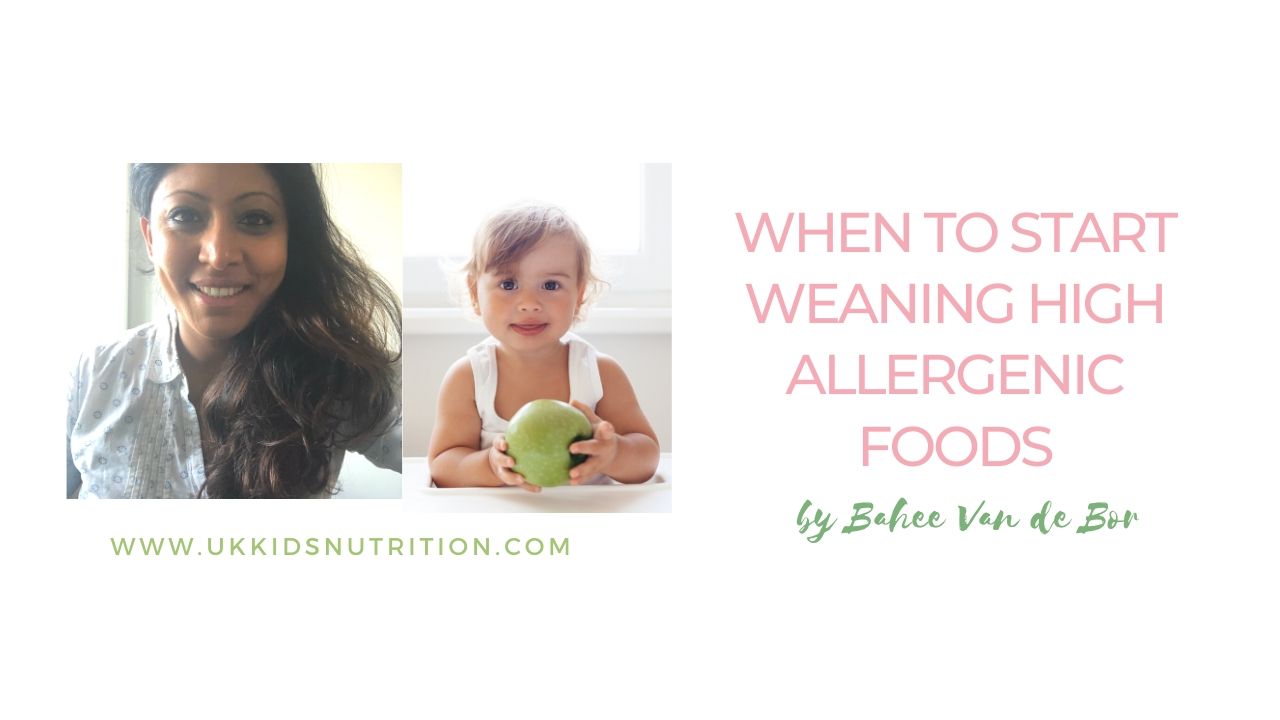
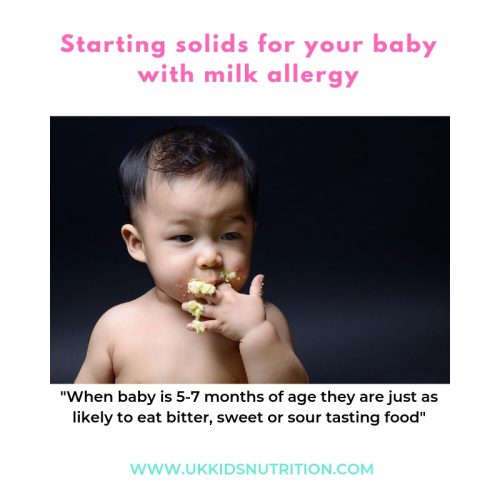
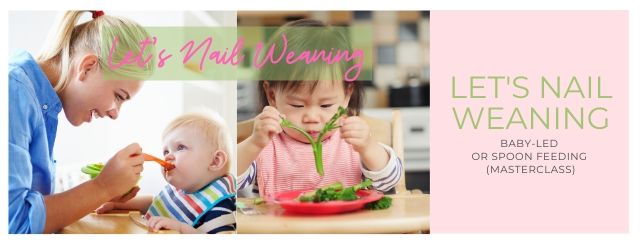
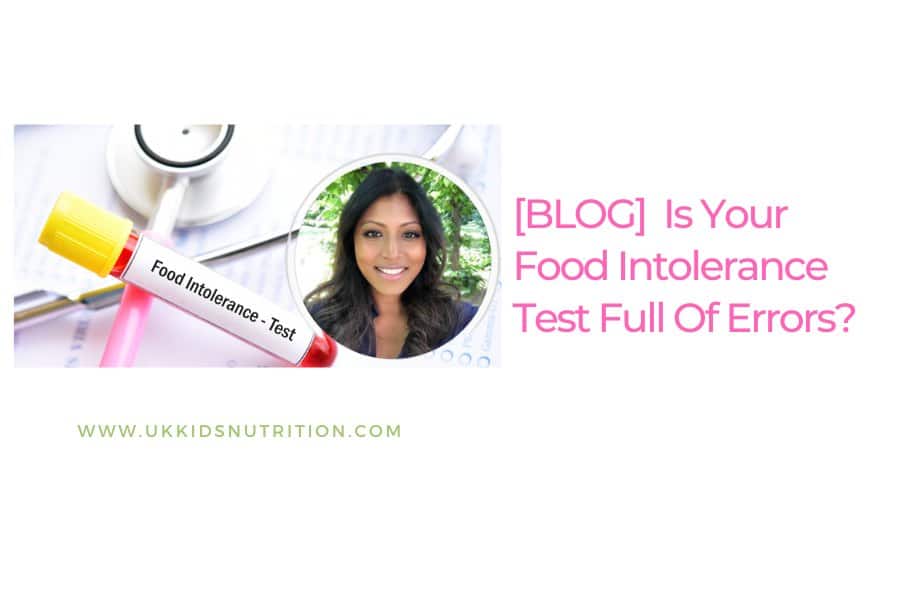
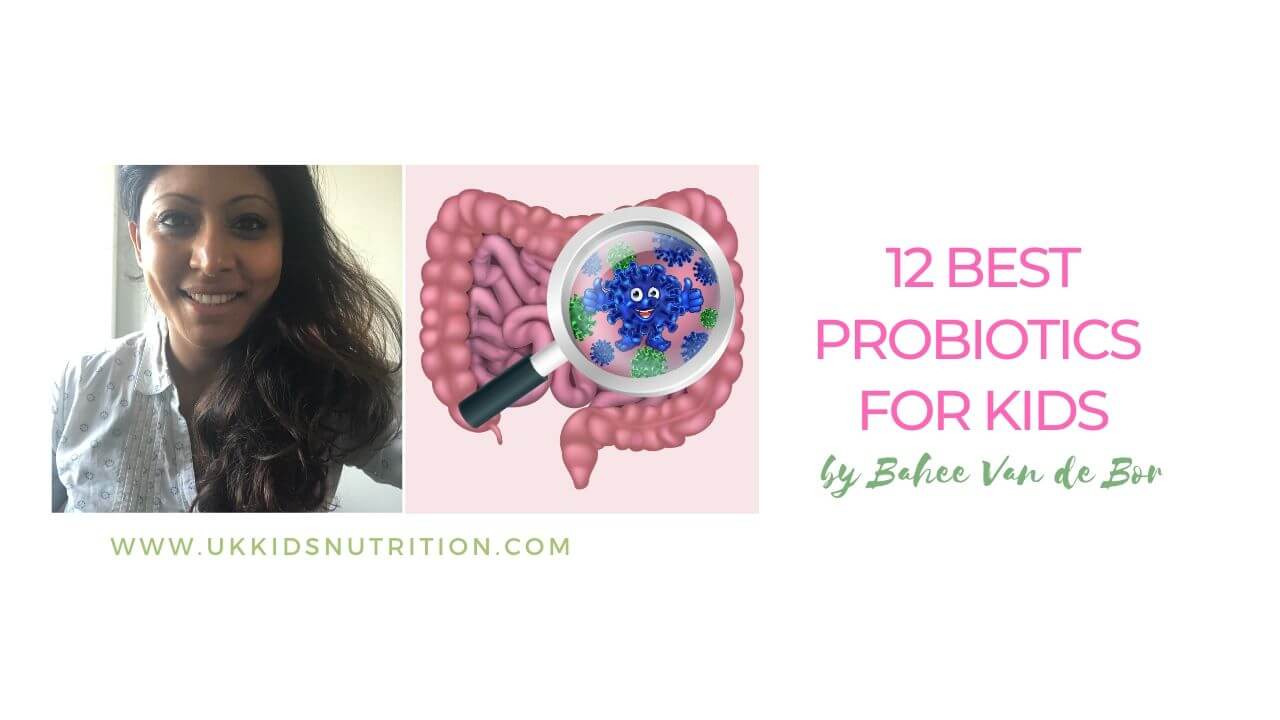
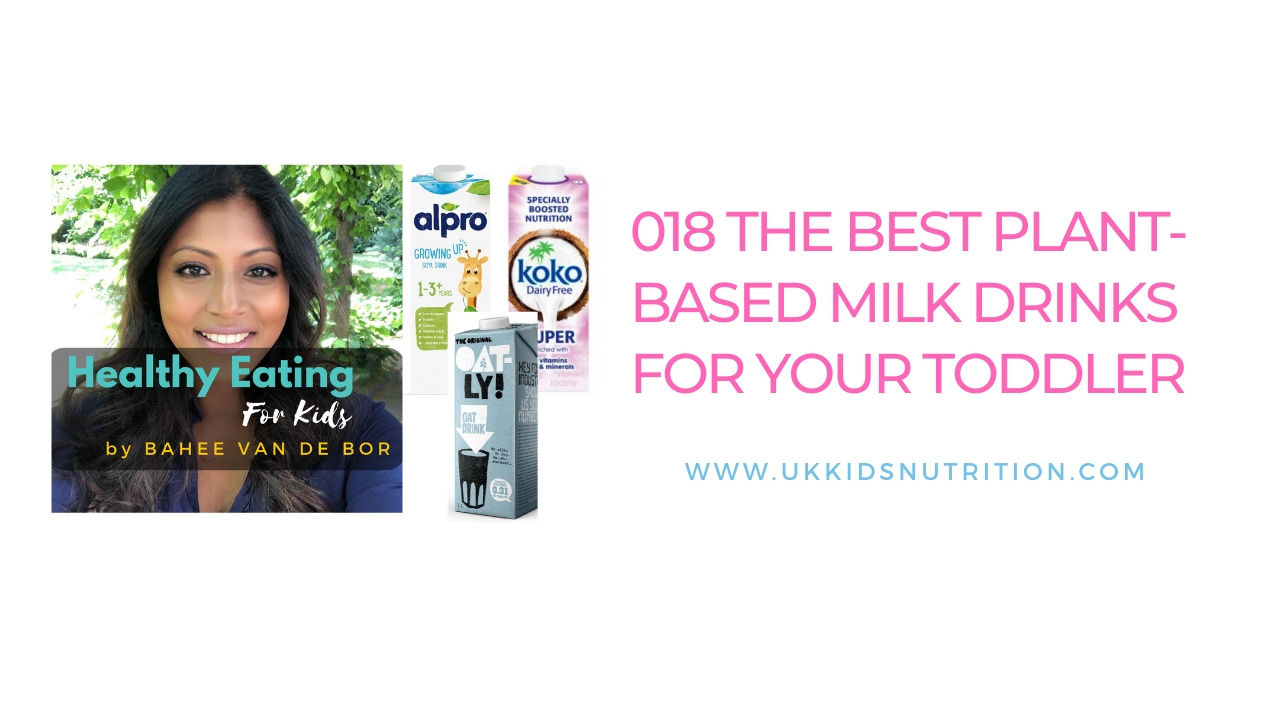
One thought on “Weaning High Allergenic Foods – When To Start”
Great info! Thanks for sharing.